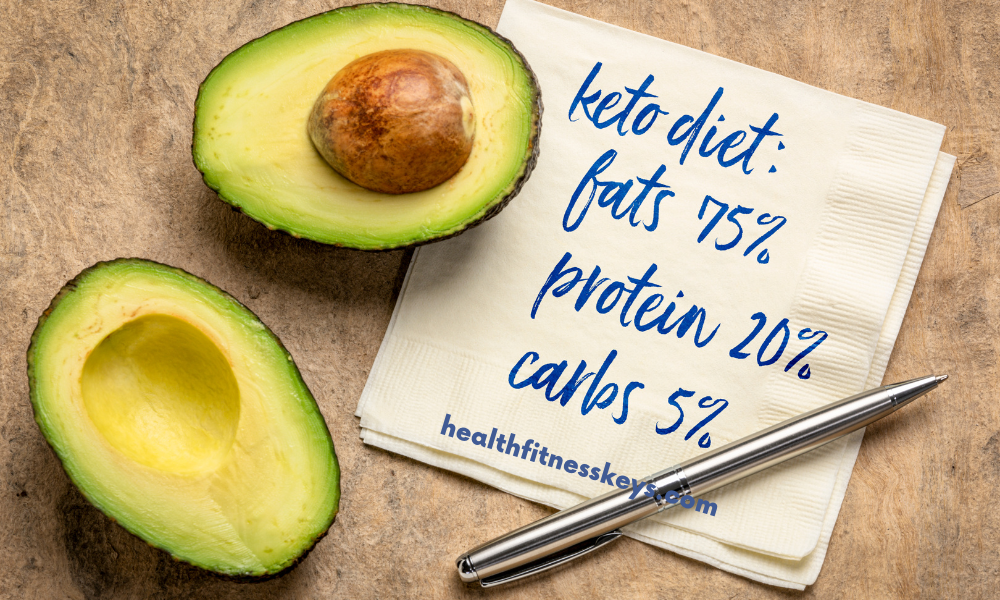Weight loss is a common goal among men and women, and it is important to understand why it is so important. There are many factors that contribute to weight gain, but there are also many effective ways to lose weight. In this comprehensive guide, we will explore the reasons why weight loss is important, the factors that contribute to weight gain, effective ways to lose weight, weight loss supplements, weight loss surgery, and common weight loss mistakes to avoid.
Why is Weight Loss Important for Men and Women?
There are many reasons why weight loss is important for men and women. One of the most important reasons is that excess weight can lead to serious health problems. Obesity is associated with an increased risk of heart disease, diabetes, high blood pressure, stroke, and many other health problems. Losing weight can help reduce the risk of these health problems and improve overall health.
In addition to the health benefits, weight loss can also improve self-confidence and self-esteem. Many people feel more confident and attractive when they reach their weight loss goals. Losing weight can also improve quality of life, as it can make it easier to perform daily activities and improve overall mobility.
Factors Contributing to Weight Gain
There are many factors that contribute to weight gain, and it is important to understand these factors in order to effectively lose weight. Some of the most common factors include:
- Poor Diet: A poor diet that is high in processed foods, sugar, and saturated fats can contribute to weight gain. Eating a balanced diet that is rich in fruits, vegetables, lean protein, and whole grains is essential for weight loss.
- Lack of Exercise: Lack of exercise is another common factor that contributes to weight gain. Regular exercise is important for weight loss, as it helps burn calories and increase metabolism.
- Genetics: Genetics can also play a role in weight gain. Some people may have a genetic predisposition to obesity, making it more difficult to lose weight.
- Medical Conditions: Certain medical conditions, such as hypothyroidism, Cushing’s syndrome, and polycystic ovary syndrome (PCOS), can also contribute to weight gain.
- Medications: Some medications, such as antidepressants, antipsychotics, and corticosteroids, can also contribute to weight gain.
- Stress: Chronic stress can lead to overeating and weight gain. Finding ways to manage stress, such as meditation, yoga, or therapy, can help with weight loss.
- Pregnancy: Pregnancy can lead to weight gain in women, and losing the extra weight after delivery can be a challenge.
Effective Ways to Lose Weight
There are many effective ways to lose weight, and it is important to find a method that works best for you. Some of the most effective ways to lose weight include:
1. Calorie Restriction:
Calorie restriction involves reducing the number of calories you consume each day. This can be done by eating smaller portions, reducing high-calorie foods, and increasing the intake of fruits, vegetables, and lean protein.
2. Exercise:
Regular exercise is essential for weight loss. Cardiovascular exercise, such as running, cycling, or swimming, can help burn calories and increase metabolism. Strength training can also help build muscle, which can help burn more calories at rest.
3. Mindful Eating:
Mindful eating involves being aware of the food you are eating and how it affects your body. It involves paying attention to hunger cues and eating slowly and without distraction.
4. Weight Loss Programs:
Weight loss programs, such as Intermittent Fasting, Weight Watchers, Custom Keto Diet and Jenny Craig, can be effective for weight loss. These programs provide support, education, and meal plans to help individuals lose weight.
5. Geeting Sleep
Getting enough sleep is important for weight loss. Lack of sleep can lead to hormonal imbalances that can contribute to weight gain.
6. Water Intake:
Drinking enough water can help with weight loss by reducing appetite and increasing metabolism.
7. Behavioural Changes
Making small behavioural changes, such as taking the stairs instead of the lift or walking instead of driving, can also help with weight loss.
Weight Loss Supplements for Men and Women
Weight loss supplements can be an effective tool for weight loss, but it is important to use them safely and under the guidance of a healthcare professional. Some of the most common weight loss supplements include:
- Green Tea Extract: Green tea extract contains caffeine and antioxidants that can help boost metabolism and burn fat.
- b) Garcinia Cambogia: Garcinia cambogia is a tropical fruit that contains hydroxycitric acid (HCA), which can help suppress appetite and prevent the body from storing fat.
- c) Conjugated Linoleic Acid (CLA): CLA is a type of fatty acid that can help reduce body fat and increase lean muscle mass.
- d) Protein Powder: Protein powder can help with weight loss by increasing satiety and preventing muscle loss during calorie restriction.
- e) Caffeine: Caffeine can help boost metabolism and increase fat burning.
It is important to note that weight loss supplements should not be relied upon as the sole method of weight loss. They should be used in conjunction with a healthy diet and exercise routine.
Weight Loss Surgery
Weight loss surgery, also known as bariatric surgery, is a surgical procedure that is used to help individuals who are severely obese lose weight. There are several types of weight loss surgery, including:
- Gastric Bypass Surgery: Gastric bypass surgery involves creating a small stomach pouch and rerouting the small intestine to this pouch. This limits the amount of food that can be consumed and reduces the absorption of calories.
- Sleeve Gastrectomy: Sleeve gastrectomy involves removing a portion of the stomach, creating a smaller stomach pouch. This limits the amount of food that can be consumed and reduces appetite.
- Laparoscopic Adjustable Gastric Banding: Laparoscopic adjustable gastric banding involves placing a band around the upper portion of the stomach, creating a smaller stomach pouch. This limits the amount of food that can be consumed and reduces appetite.
Weight loss surgery can be an effective tool for weight loss, but it is important to understand the risks and benefits before undergoing the procedure. It is also important to follow a strict diet and exercise routine after surgery to maintain weight loss.
Common Weight Loss Mistakes to Avoid
There are several common weight loss mistakes that individuals often make when trying to lose weight. These mistakes can sabotage weight loss efforts and prevent individuals from reaching their goals. Some of the most common weight loss mistakes include:
- Skipping Meals: Skipping meals can lead to overeating later in the day and can slow down metabolism.
- Relying on Fad Diets: Fad diets that promise quick weight loss are often unsustainable and can lead to nutrient deficiencies.
- Eating Too Little: Eating too little can slow down metabolism and prevent weight loss.
- Not Drinking Enough Water: Not drinking enough water can lead to dehydration and can slow down metabolism.
- Overestimating Calories Burned: Overestimating calories burned during exercise can lead to overeating and prevent weight loss.
- Not Getting Enough Sleep: Not getting enough sleep can lead to hormonal imbalances that can contribute to weight gain.


